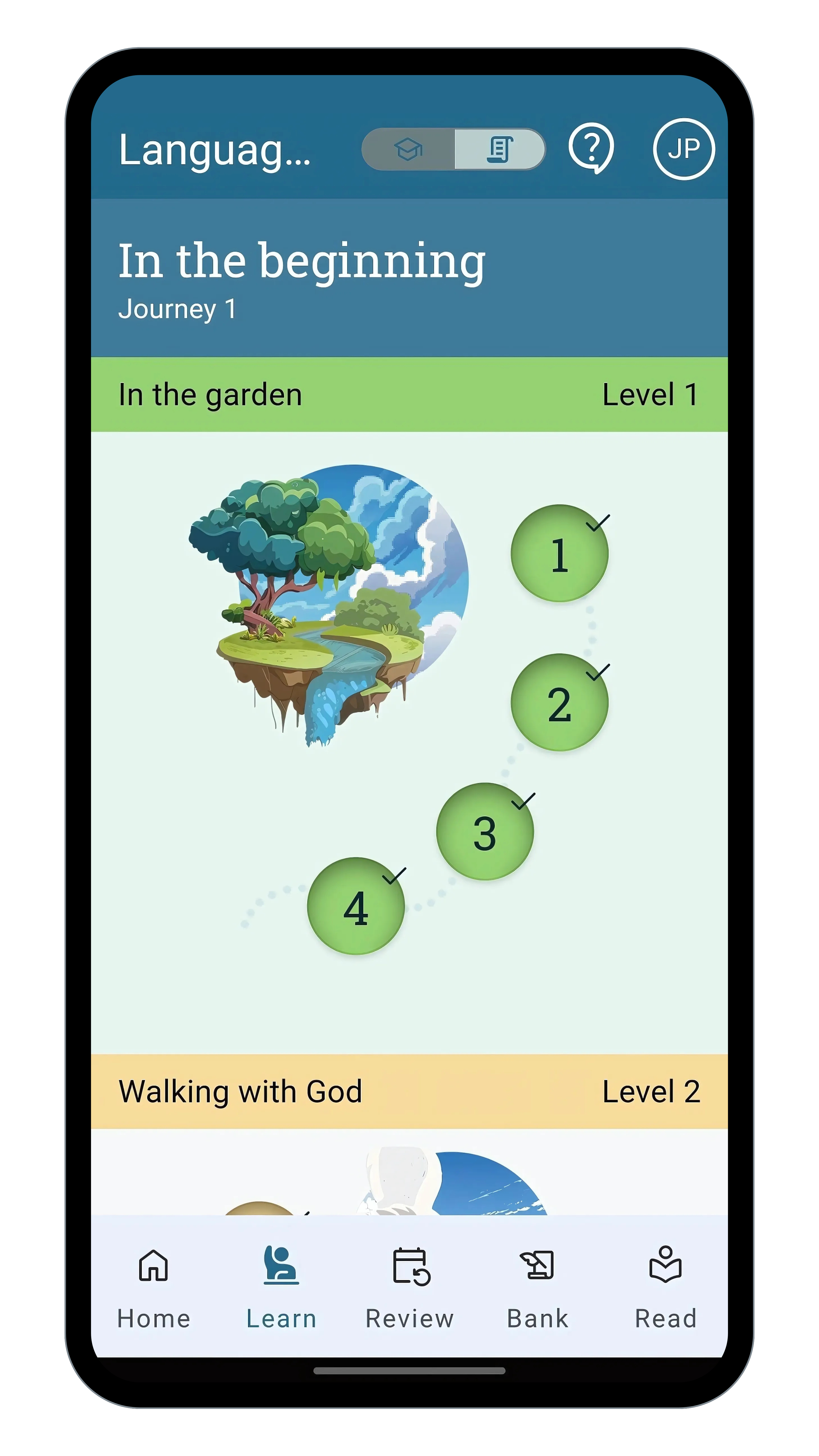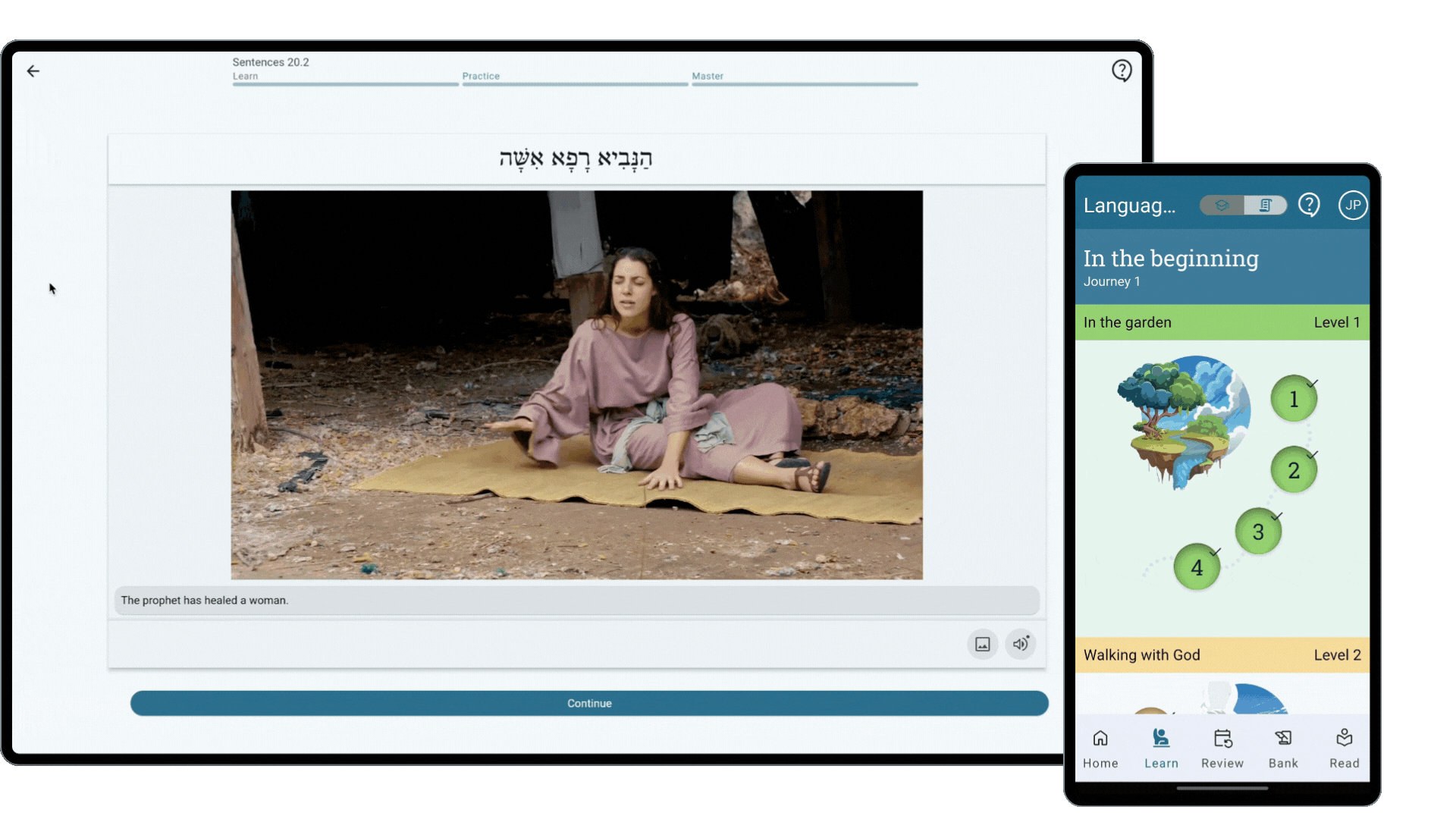Biblingo for the Classroom
Turn your students into lifelong readers of the biblical languages
Biblingo is the only language learning app that provides everything you need to lead your students to fluency and enjoyment in the biblical languages.
“Biblingo is the best available and most flexible biblical language learning tool I know of.” – Dr. Chris Tilling
Teaching Greek and Hebrew doesn't have to be an uphill battle.
Biblingo provides a surefire and straightforward method for helping your students “see the light” with biblical Greek or Hebrew.
The software incorporates insights from the latest research in both second language acquisition and general linguistics, making Biblingo an invaluable tool in the classroom. Sign up to receive a 10% discount for your students and free access to a teacher account and resources.

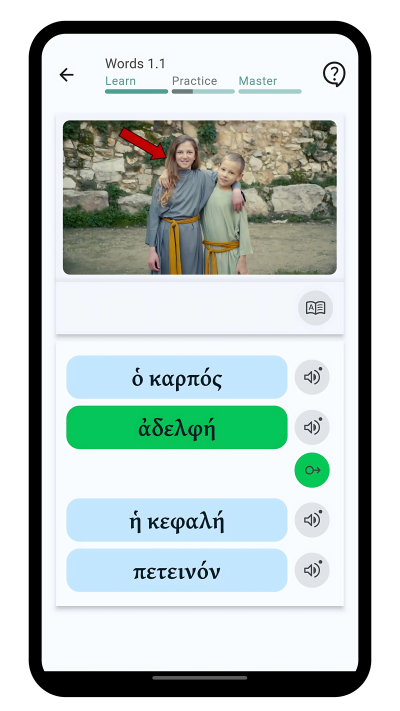
spark excitement in your students
“[Biblingo helped me] create a classroom where students were excited to come to class and to continue using their Greek knowledge after the course was done.” – Richard Olds, St. Constantine College
Biblingo utilizes principles developed in the field of SLA to help your students learn and retain the biblical languages at an entirely new level. We focus specifically on reading fluency, so that your students can be set up to enjoy reading the text for life.
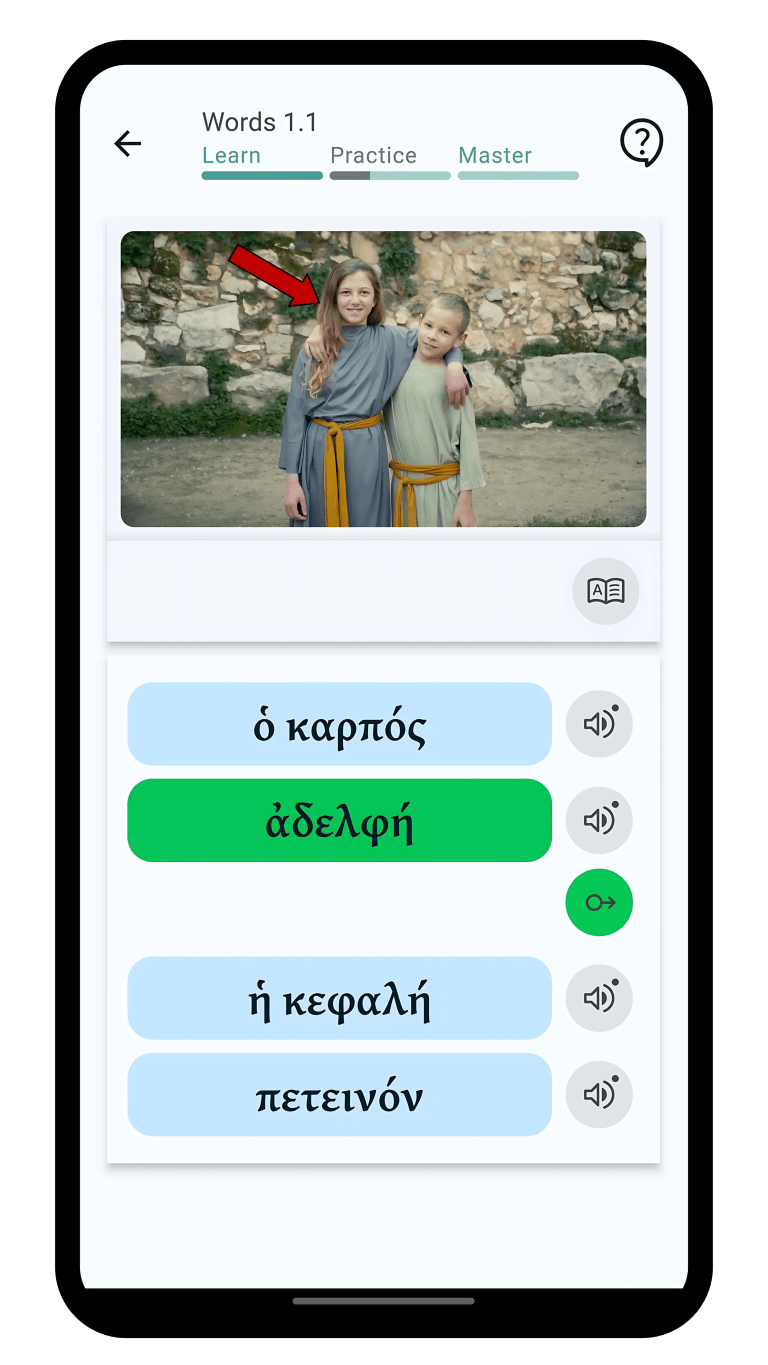
spark excitement in your students
“[Biblingo helped me] create a classroom where students were excited to come to class and to continue using their Greek knowledge after the course was done.” – Richard Olds, St. Constantine College
Biblingo utilizes principles developed in the field of SLA to help your students learn and retain the biblical languages at an entirely new level. We focus specifically on reading fluency, so that your students can be set up to enjoy reading the text for life.

train competent exegetes
“1st year students can gain a competency in reading texts at a level I’ve never really seen with any other approach I’ve taken.” Seth Ehorn, HCU
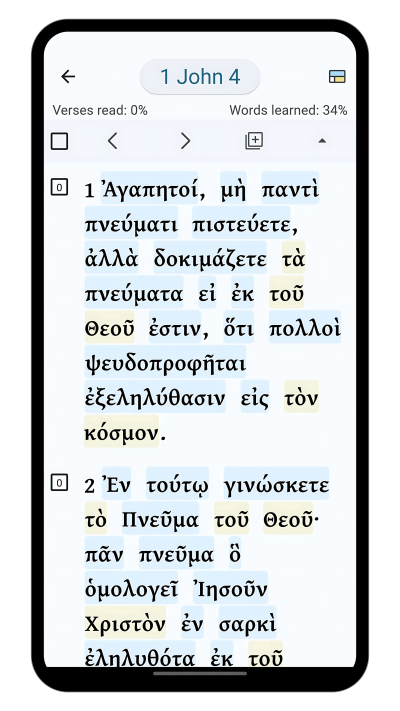
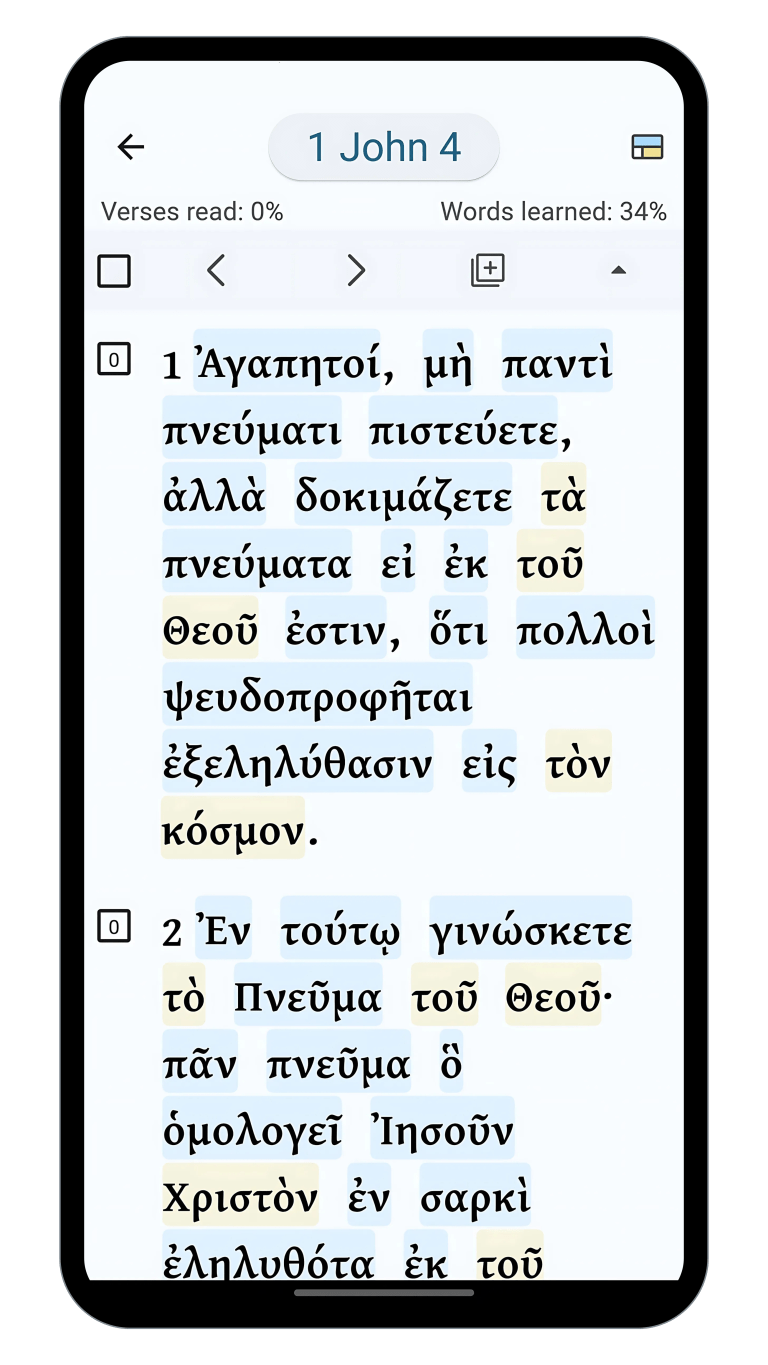
train competent exegetes
“Biblingo helps me read the original languages fluently, not just slowly and agonizingly translate the text!” – a student

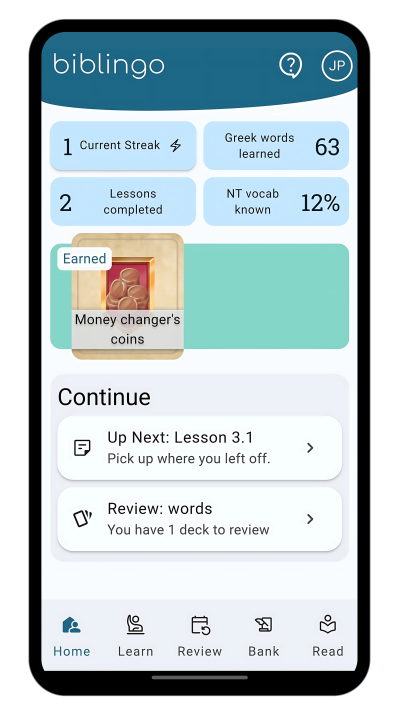
all the materials you need all in one place
“I’m easily able to use an adapt the Biblingo resources to suit my students and find that the classes are highly engaging and even fun.” – Ben Thompson, Faculty ETC Asia
We have everything you need for the classroom: quizzes paired to each level, in-class powerpoints with exercises, a free PDF textbook (forthcoming with De Gruyter). Plus, curriculum partners get a 10% discount for their students and a free teacher subscription.
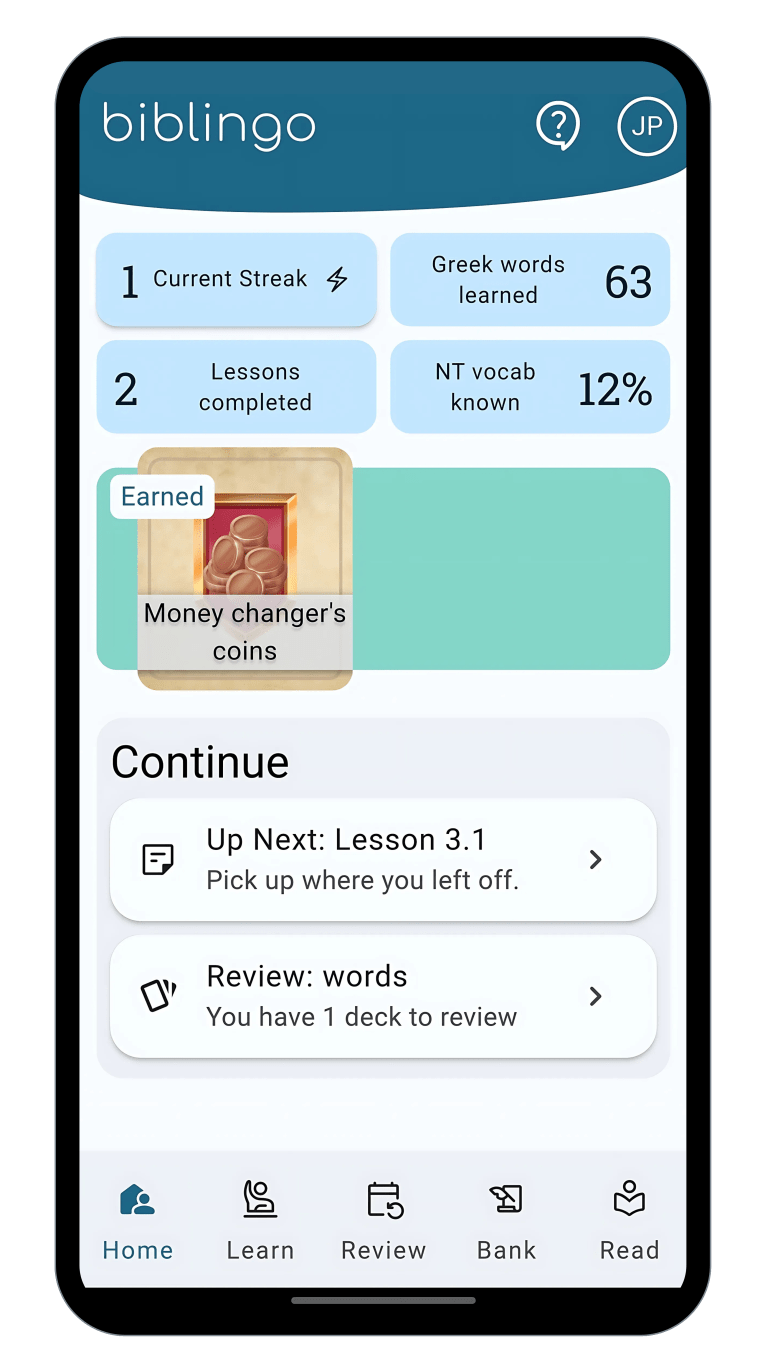
all the materials you need all in one place
“I’m easily able to use an adapt the Biblingo resources to suit my students and find that the classes are highly engaging and even fun.” – Ben Thompson, Faculty ETC Asia
We have everything you need for the classroom: quizzes paired to each level, in-class powerpoints with exercises, a free PDF textbook (forthcoming with De Gruyter). Plus, curriculum partners get a 10% discount for their students and a free teacher subscription.


founder and ceo
Kevin Grasso
Kevin Grasso is the founder of Biblingo. He has a BA in Communications (UGA), an MA in Linguistics (DIU), an MA in Comparative Religion (HUJI), and a PhD in Hebrew Language (HUJI). He has published on both Greek and Hebrew syntax and semantics and is currently working on textbooks for both languages to be published by De Gruyter (Reading Greek Deeply and Reading Hebrew Deeply).
Schedule a meeting with me to chat about how Biblingo can meet your students’ needs.
ready to get started?
Fill out this form to receive a 10% discount for your students and free access to a teacher account and resources.
Here’s what you’ll get:
![]() Full free access to the Biblingo app & software for your personal use
Full free access to the Biblingo app & software for your personal use
![]() A teacher account so you can track your student’s progress
A teacher account so you can track your student’s progress
![]() A unique 10% discount code for your students
A unique 10% discount code for your students
![]() A pdf version of my grammar textbook (publishing this Fall through De Gruyter)
A pdf version of my grammar textbook (publishing this Fall through De Gruyter)
![]() In-class slides that pair with the lessons in the app
In-class slides that pair with the lessons in the app
![]() Quizzes and exams
Quizzes and exams
common questions
The basic flow is for students to do the Biblingo lessons for homework and to come to class and do Biblingo’s in-class materials paired to the lessons. Teachers can also use Biblingo’s assessments for tests and quizzes. For more, see our implementation guide.
There are 6 vocabulary words per lesson, and it is recommended that 3-4 lessons are done per week. This does not include grammatical words, such as prepositions, conjunctions, question words, etc. In a 15-week semester, this amounts to about 300 words.
We believe that the pace should depend on how the students are progressing. The classroom should be set at a pace where most students feel like they are “winning,” like learning Greek and Hebrew is a challenge that can be conquered. Although our recommended pace is 3-4 lessons per week, teachers should have the flexibility to adjust the schedule. For a more detailed schedule of our recommended pace, see the implementation guide.
If the students are in an introductory language course for either Greek or Hebrew, all they should need is the learner plan. If they are in an exegetical course or a more advanced course where the biblical text will be read, the accelerator plan will provide them with the Bible reading module–a customized graded reader for reading through the text at a pace tailored to your proficiency level.
Biblingo’s full curriculum covers significantly more than other introductory textbooks. In addition to the regular and irregular morphological forms, more advanced topics are also covered, such as the semantics of verbal forms, the meaning of adjectives, the various kinds of nominalizations, information structure concepts like topic and focus, poetic features, and much more. How much of this will be covered in the classroom will depend on how many semesters are taught with Biblingo and how fast the class goes.
Biblingo has a variety of pronunciation options in both Greek and Hebrew, reflecting our belief that you can learn the language well using different pronunciation systems (just like Britons and Americans both know English pretty well, despite their differences in pronunciation). In Greek, you can choose from the reconstructed systems of Early High Koine (closer to Classical) or Koine (closer to Modern), or you can choose the academic standard Erasmian or the Modern Greek system. In Hebrew, you can choose between Modern Israeli (basically Sephardic) and biblical (the system reflected in the Tiberian reading tradition).

